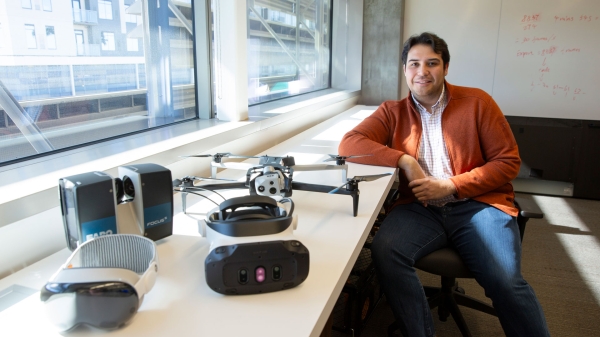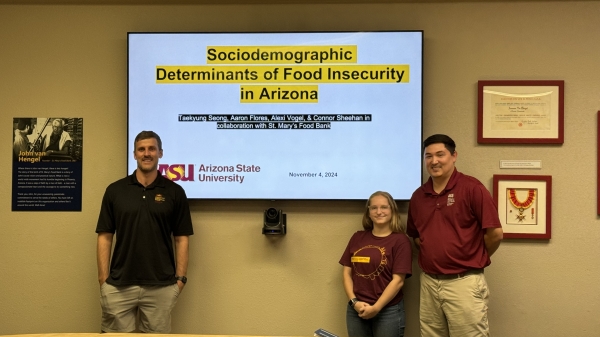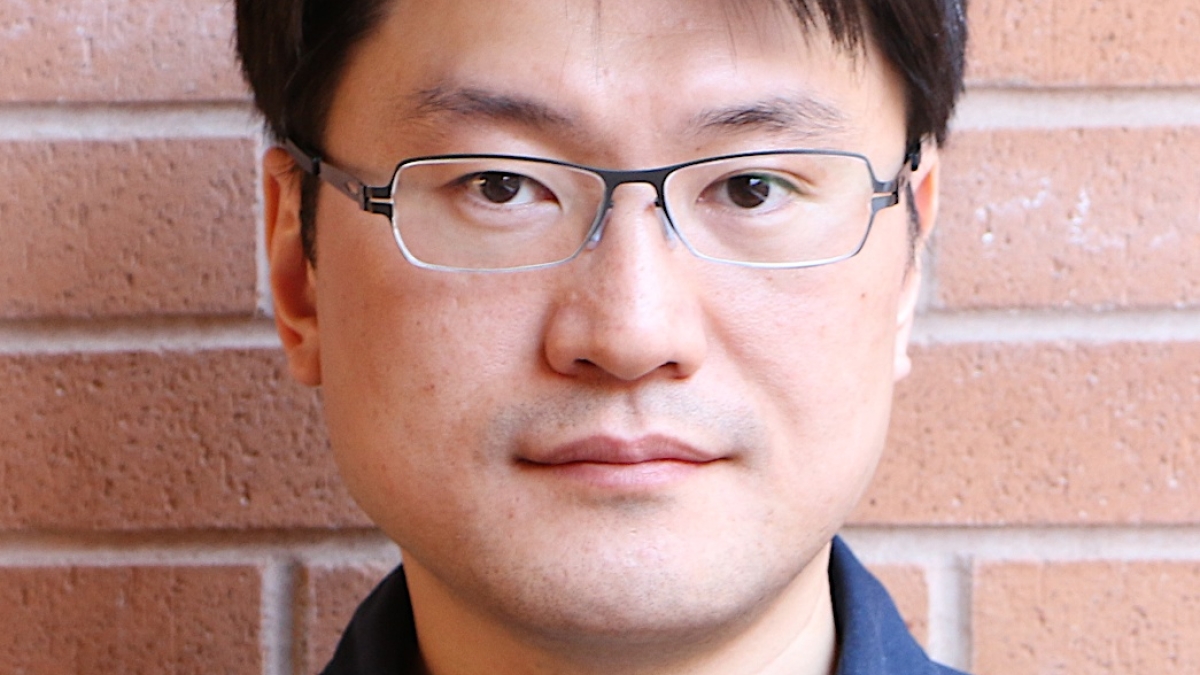Ming-Hung (Jason) Kao, assistant professor of statistics at ASU’s School of Mathematical and Statistical Sciences, has won a coveted CAREER Award, given by the National Science Foundation to young academics expected to make significant impact in their chosen fields.
The $400,000 CAREER Award will support Kao's research in an increasingly important area: he is designing functional brain imaging experiments that are crucially important for understanding the inner workings of the brain.
Kao’s focus is developing novel statistical methods for the design of functional brain imaging experiments that utilize pioneering neuroimaging technologies, such as functional magnetic resonance imaging (fMRI), electroencephalography (EEG) and functional near-infrared spectroscopy (fNIRS). Research results to guide the selection of designs best suited to these experiments are very lacking. Often times, the researcher selects an experimental design without knowing its performance. This results in a poorly designed experiment and makes it difficult, if not impossible, to render a precise statistical inference for providing a valid answer to the research question of interest.
“One of my research goals is to steer experiments away from wasting time and money on such poorly designed experiments,” says Kao. “I would like to derive insightful analytical results to provide useful guidelines for evaluating and selecting experimental designs for functional neuroimaging studies.
“I would also like to develop efficient computational approaches to provide powerful tools for obtaining highly effective experimental designs.”
Kao’s research will not only contribute to statistical research, but also be of practical importance. The results will help researchers to conduct well-designed neuroimaging experiments to collect high-quality data for making precise statistical inference. This will further lead to a better understanding of the brain and some brain disorders, such as Alzheimer’s disease, epilepsy and traumatic brain injury.
“One of the key contributions of statistical and computational modeling is that it guides scientists to perform the ‘right experiments’ instead of randomly trying approaches that lead down blind alleys,” says Al Boggess, director of the School of Mathematical and Statistical Sciences. “Dr. Kao’s scientific contributions provide this insight, and I am very pleased that his accomplishments and potential have been recognized by the National Science Foundation through this prestigious award.”
A graduate of National Central University in Taiwan, Kao earned his bachelor's degree in mathematics and his master’s degree in statistics. He earned his doctorate in statistics from the University of Georgia. He joined the faculty at Arizona State University in 2009.
“I want to thank University of Georgia professors John Stufken, Abhyuday Mandal and Nichole Lazar, who introduced me to this exciting research area and guided me to build the skills and strength to make further contributions,” said Kao.
“I have been fortunate enough to join Arizona State University, which provides an inspiring academic environment to help young scholars to grow stronger. The College of Liberal Arts and Sciences seed funding is one of the important factors that made this possible. I also am grateful for (school director) Al Boggess' support and encouragement.”
Kao’s grant not only helps fund his research project, but also allows him to develop a new program for undergraduate students. NSF CAREER Awards have a built-in educational component that provides support for researchers’ efforts to engage and build new generations of scientists.
“We will be developing new courses in design of experiments and statistical methods for biomedical studies,” Kao explains. “We want to broaden students’ knowledge on modern statistical methods, equip students with practical statistical skills and help students to gain hands-on experience on statistical applications. I am excited that students will play an important role in this research project.”
More Science and technology

Teaching construction realities with virtual environments
Visiting a construction site is a valuable learning opportunity for students who want to one day work in the industry.…
ASU, Mexico partner to build next generation of chipmakers, drive semiconductor innovation
Thousands of college students in Mexico will soon have the opportunity to enroll in Arizona State University’s new, free online…

ASU, St. Mary’s Food Bank partner to tackle food insecurity in Arizona
Arizona State University and St. Mary’s Food Bank (SMFB) have joined forces to create an interactive data dashboard that tracks…
